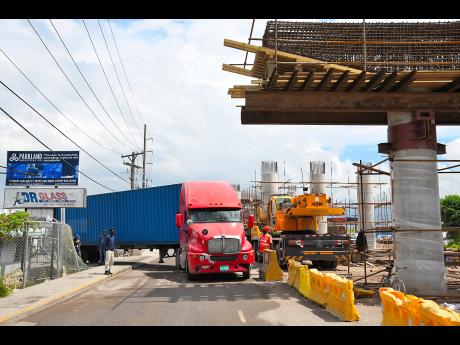Jan Keil | Industrialisation or poverty
Incomes in the United States are 12 times higher than in Jamaica.
Still, many basic commodities are, on average, much more expensive here. Milk, for example, costs three times as much as in the US. This economic weakness means poverty with all its human tragedies. Escaping it must always be the primary political concern.
But how the big end can be reached is not obvious, especially not for experts. There is a saying that you can 'put two economists into a room and you'll get three opinions'.
As an economist, I am sceptical about most abstract theory which is usually extremely sensitive to rather questionable assumptions. Gladly, the field has shifted towards empirical research. This is a good thing. Accordingly, the only useful answer to the quest of development lies in the real history of economies that were once poor and successfully managed to become rich, and not in 'what could hypothetically work'.
This simplifies the issue at hand dramatically.
Throughout the entire existence of capitalism just three paths ever made poor countries rich: exporting significant fractions of the world oil supply, for example, Kuwait; creating offshore tax havens with a very small population, for example, Monaco; and industrialisation - rapid growth in emerging manufacturing industries lasting for several decades, for example, England.
Industrialisation the only way
Jamaica has no oil. The population is far too big to become a tax haven with a high standard of living for everyone. If the 250-year history of modern economies yields any type of guidance at all, there is only one sole path to prosperity - industrialisation. It cannot be agricultural production of coffee, ganja, or any other crop; not tourism, entertainment, outsourced call centres, or any other services. Growth in these sectors may have social value and yield relatively easy, immediate returns.
Jamaica may have a brand name or a comparative advantage. But the history of all real existing success stories implies that they will never enable this or any other comparable country to fully escape poverty. Let me repeat this and be perfectly clear: services, agriculture, and mining will never develop Jamaica. Not in 500 years.
There are reasons for this. Production in manufacturing is not technically limited by natural conditions, as in the case of agriculture, mining, or tourism; growth is not limited by the home market, as goods can be exported; high reliance of manufacturing on production by other industries generates positive demand impulses for the overall economy; research, technological development, and innovation is concentrated in manufacturing. The manufacturing sector accounts for the overwhelming majority of any nation's patent filings, and research and development spending.
Interestingly, all industrialisation in the mid-19th century, just like today, had something in common: manufacturing industries that experienced rapid growth and pulled countries out of poverty were special ones. They were at the heart of the development of the major new technologies of their time. Prominent in the case of England were textiles; steel in the US; equipment and machinery in Germany and Japan; and the 'Asian Tigers' Taiwan and South Korea relied heavily on semiconductors. Why? Because these industries grew dramatically faster.
Entry with a chance to eventually become competitive is much easier and cheaper in emerging industries. They involve the highest rates of technological development, which creates positive technological spillovers along the value chain (inputs, inputs of inputs, ...), upgrading the entire economy.
There is some bad news. Value added in Jamaican manufacturing contributes just nine per cent to GDP, with an average growth of total GDP in the past 20 years of just 0.5 per cent. In industrialised countries like Switzerland, this number is almost triple.
Even worse, our manufacturing industries are not those that can make a poor country rich. More promising are portfolios of countries like Malaysia and China (7-9 per cent average GDP growth) with photovoltaic energy equipment, batteries, electric cars, cell phones, semiconductors and other electronics.
These are industries of the future. But if they are to make a country rich, there are also other factors to be considered, such as crime, corruption, effectiveness of the bureaucracy, the financial sector, and trade relations. These conditions do not look good in Jamaica, either.
Last, even a promising industrialisation is painful, long, uncertain, and possibly easier to implement in the cultural contexts of Asian economies.
However, there is also good news. Once, things looked just as bad in countries that succeeded. They created special industrial zones, provided infrastructure, financing, training, attracted foreign and founded domestic companies. Almost out of nowhere, Intel invested in a massive plant in Costa Rica (4.5 per cent average GDP growth).
The Jamaican workforce certainly does not lack creativity. Solar radiation has the potential to supply extremely cheap electricity; port facilities are located in a large natural harbour in direct proximity to a weak but existing industrial corridor extending from downtown Kingston to Spanish Town.
We need to take a closer look at the Asian Tigers, at currently emerging competitors, and follow their example as rapidly as China does. Then there is hope for an economic miracle in any country - even for a 'Caribbean Tiger' or a 'lion'.
But that will happen only with industrialisation in emerging manufacturing industries. And only when all money and brainpower are directed towards this sector without compromise. Only then might the current 'meow' of this economic kitten eventually become a 'roar'.
- Jan Keil is lecturer/assistant professor in the Department of Economics, University of the West Indies, Mona.


